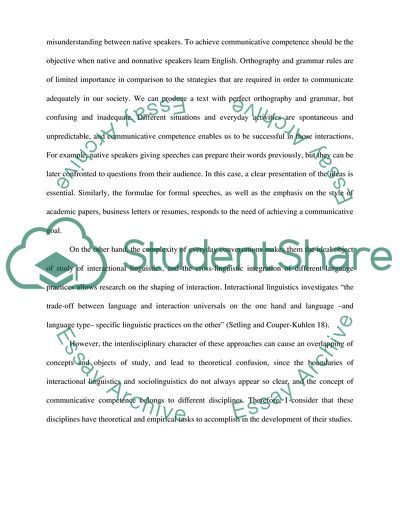Cite this document
(“Linguistic Competence Essay Example | Topics and Well Written Essays - 2000 words”, n.d.)
Retrieved from https://studentshare.org/sociology/1547640-linguistic-competence
Retrieved from https://studentshare.org/sociology/1547640-linguistic-competence
(Linguistic Competence Essay Example | Topics and Well Written Essays - 2000 Words)
https://studentshare.org/sociology/1547640-linguistic-competence.
https://studentshare.org/sociology/1547640-linguistic-competence.
“Linguistic Competence Essay Example | Topics and Well Written Essays - 2000 Words”, n.d. https://studentshare.org/sociology/1547640-linguistic-competence.


